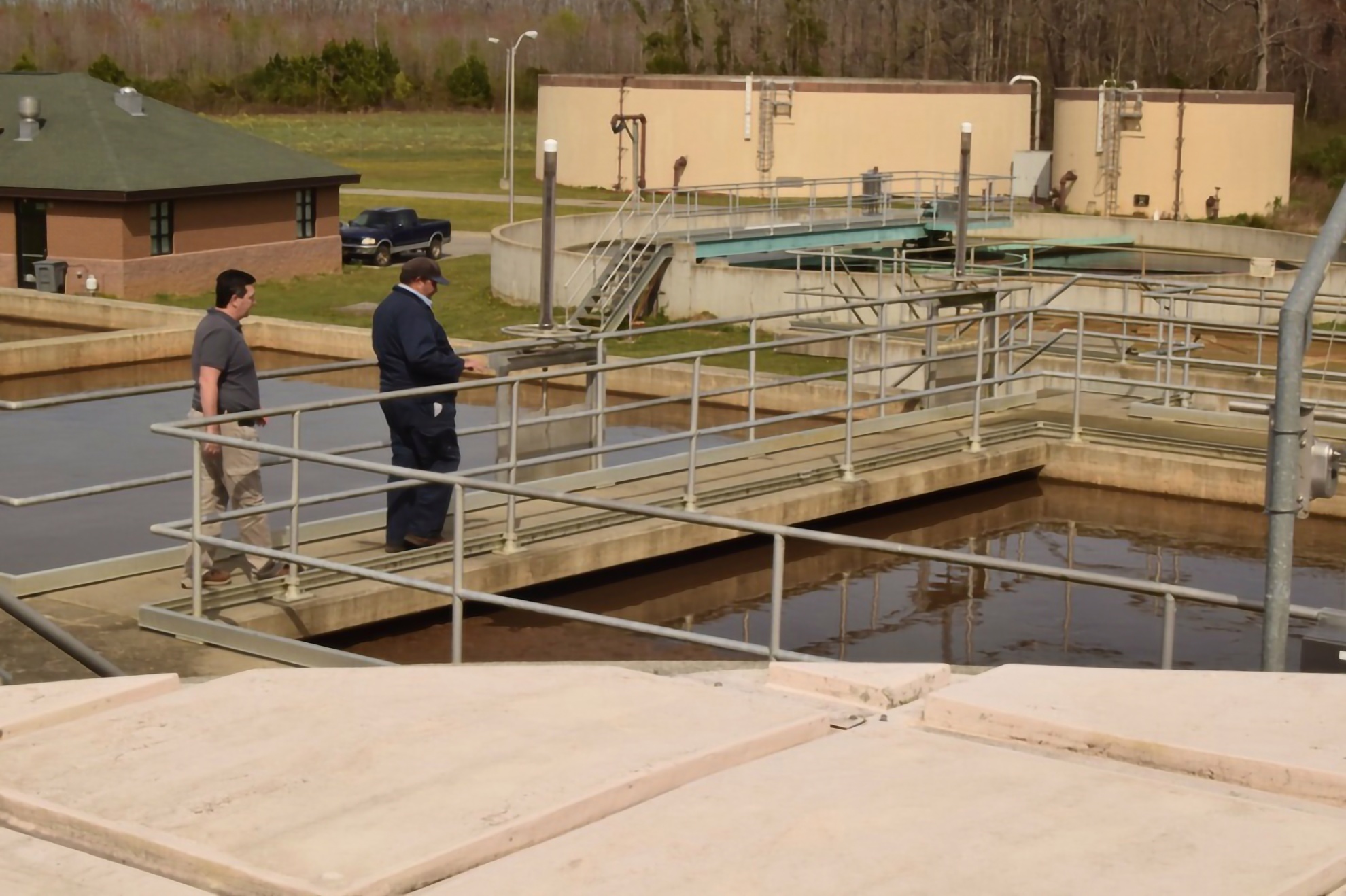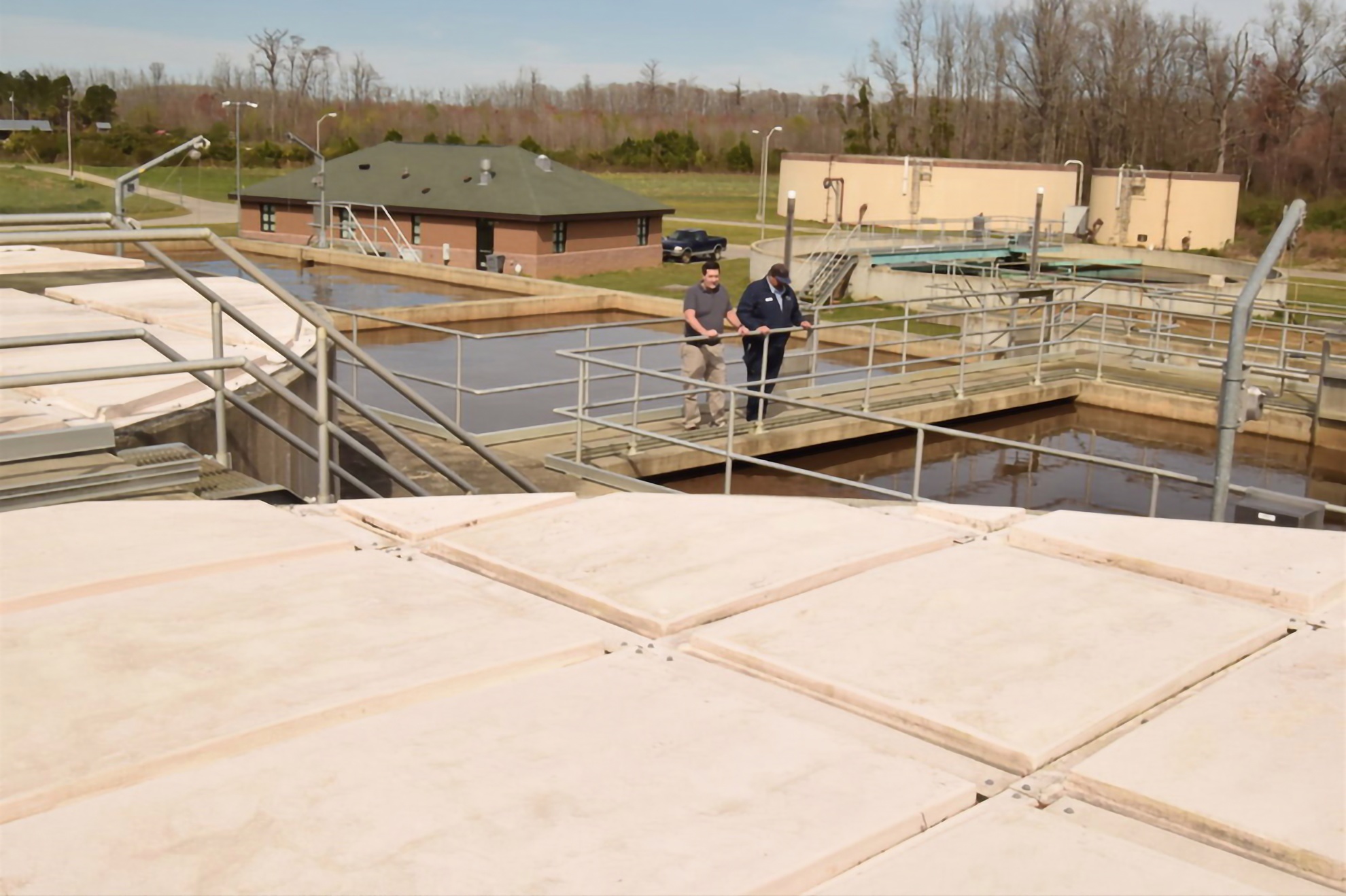The City’s Waste Water Treatment Plant provides our customers with a system capable of treating domestic and industrial wastewater, using methods that meet or exceed all regulatory standards and requirements. The WWTP department works to ensure the City has clean, filtered, and drinkable water for municipal, commercial, and residential use.
The department is responsible for vector control, otherwise known as mosquito control spraying. We monitor the number and type of mosquitoes in the City throughout the year. We also take steps to manage mosquito populations and prevent mosquito-borne illnesses, which includes spraying. We can help you learn more about the mosquitoes in our area and how to prevent them in your yard.
The WWTP is very environmentally conscientious regarding the City’s water, sewer, and wastewater systems. The WWTP staff is on-call 24-hours a day to respond to various emergencies.
The NC Clean Water Act of 1999 requires the City to provide an annual report to its customers and to the North Carolina Department of Environmental Quality (NCDEQ) to summarize the sewage treatment works and collection system’s performance over the last year. You may review this report by clicking here.
Trained and certified operators, committed to the goal of providing the City’s wastewater customers efficient and cost-effective wastewater disposal, staff the WWTP. The City’s collection and treatment processes protect you and the environment from potential harm of inadequately treated wastewater.
The City has two (2), 300,000-gallon capacity storage tanks, the wastewater treatment plant including a laboratory, and ten (10) lift stations. The City’s water source is from five (5) ground water wells.
Keeping the City’s sewers fat-free is also very important. The fats in grease and oil from kitchens when mixed with other chemicals in the sewers, form conglomerations of chemicals that build-up and block pipes taking dirty water to the WWTP. Fat and oil build-ups cause a large number of sewer overflows.
DID YOU KNOW THAT COOKING GREASE IS THE MAIN CAUSE OF MOST RESIDENTIAL PIPELINE AND CITY COLLECTION SYSTEM BLOCKAGES?
These blockages can result in sewer spills throughout the City. Cooking grease coats the inside walls of sewer pipes, similar to the way fatty foods can clog your arteries. The grease that clings to the pipes builds up over time and acts as a host for other materials to cling to, restricting the size of the pipe even more.
Eventually the pipe becomes completely clogged and sewer will back up either in the homeowner’s yard or through a manhole into the City streets and possibly to streams. By doing a few simple things in your home or business, you can help prevent costly sewer spills and reduce environmental impacts associated with spills.
Listed below are things to remember:
-
All cooking oils (including salad oil, frying oil, bacon fat, and marinades) need to be poured into a container. The container can be an old milk carton, frozen juice container or other non-recyclable container and disposed of in the garbage. You may use cat litter or used coffee grounds to absorb the liquid in the container.
-
Dry wipe all pots and dishes. Use a paper towel or napkins to remove greasy leftovers from pots and dishes prior to washing in the sink or dishwater.
-
Place leftover foods, fat trimming from meat, etc. in the trash can instead of the garbage disposal.
-
Whenever meat is drained in a colander, place the colander over newspaper instead of the sink, and then throw the newspaper away.
-
Never dump motor oil or other lubricants down the drain. Take them to a collection point.



